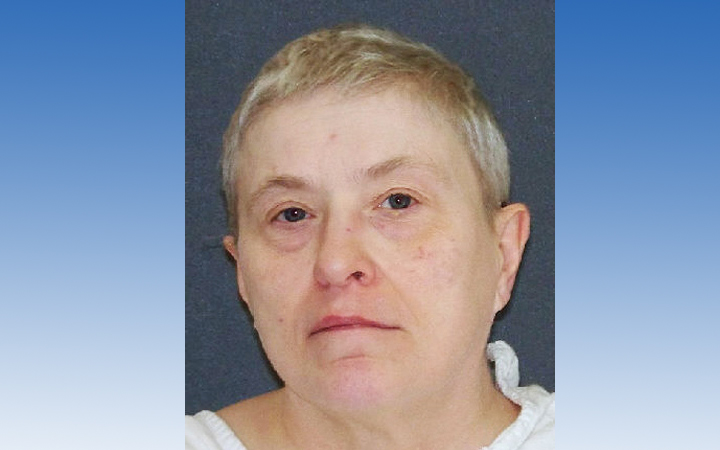HUNTSVILLE, Texas – When capital murder defendant Suzanne Basso showed up for court, there was no certainty which Suzanne Basso would appear.

Basso, 59, is scheduled to be put to death Wednesday for the 1998 slaying of 59-year-old Louis “Buddy” Musso.
“She would pretend to be different things,” recalled Colleen Barnett, who prosecuted Basso for the torture slaying of a mentally impaired man near Houston more than 15 years ago. “One setting she would pretend to be blind. One setting she would pretend she couldn’t walk. One setting she had the voice of a little girl.
“I don’t know how to describe her.”
Executions of women are rare. Basso would be only the 14th woman executed in the U.S. and the fifth in Texas since the Supreme Court in 1976 allowed the death penalty to resume. Since then, nearly 1,400 male inmates have been put to death nationwide, 505 of them in Texas.
Basso’s lawyer argued she is not mentally competent enough to face execution because she suffers from delusions, and that the state statute governing competency was unconstitutionally flawed. He also challenged the legality of a medical examiner’s testimony.
A state judge last month ruled that Basso had a history of fabricating stories about herself, sought attention and manipulated psychological tests. One psychiatrist indicated additional testing over an extended period of time “would provide a more reliable evaluation,” attorney Winston Cochran said in a federal court filing.
“Why rush to judgment on Basso?” he asked, seeking a punishment delay that was refused Monday by the Texas Court of Criminal Appeals and a federal judge.
The appeal also was rejected late Tuesday by the 5th U.S. Circuit Court of Appeals. It was not immediately clear if Cochran would take the case to the Supreme Court. He did not respond to a message left Tuesday night by The Associated Press.
At the competency hearing, Basso testified from a hospital bed wheeled into a Houston courtroom and talked about a snake smuggled into a prison hospital in an attempt to kill her. Cochran said a degenerative disease has left her paralyzed. Basso contended her paralysis was the result of a jail beating years ago.
At the hearing, she acknowledged representations about her background – that she was a triplet, worked in the New York governor’s office, had a relationship with Nelson Rockefeller – were untrue. She is originally from the Albany and Schenectady areas of New York.
At her trial, Basso was portrayed as the ringleader of a group of people who fatally tortured Musso to steal his money. Musso, who was mentally impaired but cared for himself, had met either Basso or her son at a church carnival in New Jersey. He left there to move in with her in Jacinto City, just east of Houston.
“She lured him to Texas with the idea they’d get married,” Barnett said.
Evidence showed that she already was married, made herself the beneficiary of insurance policies purchased for Musso and took over his Social Security benefits.
Five others, including Basso’s son, also were convicted for Musso’s death. Prosecutors sought the death penalty only for Basso.
Court documents detailed extensive abuse Musso endured days before his body was found in a ditch by a jogger.
He’d been bathed in a solution of bleach and pine cleaner and scrubbed with a wire brush. An autopsy showed he had at least 17 cuts to his head, 28 cuts and cigarette burns on his back, bruises all over his body, a skull fracture, a fractured bone in his neck, 14 broken ribs and two dislocated vertebrae.
“It was just horrible, horrible, horrible,” Barnett said. “When you talk about the death penalty, what the death penalty was made for, it was for a case like this.”



Comments